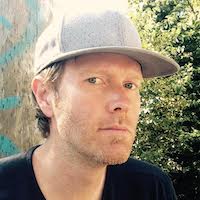
Researchers are currently exploring the infamous street drug “Special K,” or Ketamine, as a possible treatment for depression.
Bob McDonald of “Quirks and Quarks” states that researchers are discovering that Ketamine, like the plant medicines Ayahuasca and Psilocybin Mushrooms, can help heal emotional trauma. What he brings to light in his article is the misinformed point of view of the establishment that anti-depressants help heal emotional trauma as opposed to simply placating it. Moreover, he highlights the deeply troubling misconception of what emotional healing actually is.
What is clear is that Ketamine is intended to be rebranded and sold in small doses as an anti-depressant. It will become a part of the ever-growing family of anti-depressant medications available, which includes the hugely popular SSRIs (selective serotonin re-uptake inhibitors).
There is no denying that most of these medications can help patients in a bad state. However, they do not heal emotional trauma.
Having taken both anti-depressants and plant medicines—Ayahuasca and Wachuma in a ceremonial space and Psilocybin Mushrooms recreationally—I find this notion profoundly naive and misinformed.
Anti-depressants are exactly as advertised: they reduce the symptoms of depression. But they do not heal emotional trauma. They are simply a bandage for depression and anxiety while, ideally, the person takes genuine therapeutic measures, like psychotherapy or developing a meditation practice. After those measures reach a certain point of success, the anti-depressant should no longer be needed.
That’s the standard Western protocol and theory anyway.
However, while anti-depressants help us feel better and do our work while also allowing us to maintain an acceptable, and in many ways healthy, level of involvement and (let’s not kid ourselves) showmanship in our social circles and online presence, they create a state of dormancy in the deeper layers of healing that are naturally taking their course with
“depression.”
Yes, the feeling of depression is actually a sign of evolution and growth. But instead of being guided through it and taught how to handle it, we’re taught to avoid it at all costs.
The fact is, we’re not taught to embrace and accept the discomfort of being human in our culture. Instead of being offered guidance and tools like rites of passage, rituals (including meditation and yoga practices), and plant medicines, we’re offered elixirs.
Unfortunately, it’s also true that our emotional discomfort is easily exploited for profit: “You don’t feel well? Take this.”
The truth of the matter is, when we run from our discomfort and avoid depressive phases, milestone breakdowns, purges, intense releases of rage, and (perhaps the most important and healing one of all) periods of grieving, then the depression stays or returns over and over again.
When I was 30, I was going through a challenging time. A time of marriage, moving, movie-making, and mortality—one of my closest friends committed suicide a year earlier. This was the time of the four M’s. But there was another M that I didn’t see at the time that trumps them all in terms of the emotions I was experiencing at the time: Maturation.
Within all of the disorientation, uncertainty, anxiety, and depression, I was experiencing a natural phase of development. Due to my experience with loss, and the necessary acceptance of responsibility and reality (as circumstances were drastically changing), my life required a seismic shift. I needed to explore a depth of emotion I did not know existed.
My orientation as a person needed realignment; I needed to find a depth in character and a rootedness as a human being. I was being beckoned toward a higher level of consciousness and deeper level of maturity.
But instead of being guided through this important time by a mentor or elder and learning to sit with and learn from the discomfort, I ran. I dissociated from the feelings by using alcohol, drugs, prescribed anti-depressants, and other means of distraction and dissociation. All of these elixirs simply piled on top of a tangled web of un-integrated and avoided “emotional baggage,” which simply made the anxiety and disorientation worse.
The anti-depressants brought a sense of normalcy, but it was just a mask, pushing the emotions further from my awareness and certainly making them inaccessible for integration and repair. The doctors were helpful in a way, suggesting relaxation exercises and “kind of” suggesting counseling—I was ostensibly healthy, the panic attacks normally only happened at night.
But what they made clear was that this happens to regular people all of the time and it’s just time to slow down. I took from this conventional wisdom that my experience was primarily due to the way in which I engaged with my environment. I created this, so I could undo it. It was about changing my experience in the moment: I simply had to change my external stimulus and how I engaged with the world. You know: “Fitter, Happier, More Productive, Comfortable, Not Drinking Too Much, Regular Exercise at the Gym, Three Days a Week…”
What I didn’t realize at the time was that this paradigm and point of view was profoundly flawed. It was soulless.
Which was exactly how I felt.
Ten years later, another emotional tsunami struck. A beautiful and divine convergence of Ayahuasca, the mentorship of an elder, and a marital separation. All of the emotions from 10 years prior—from the deaths of two good friends, two failed marriages, the existential crisis of my 20s, the traumas of childhood, the inevitable guilt and pressures felt from being a parent and step-parent, friend, lover, leaver—all finally found a way out. Like I finally awoke from a 40-year-long dream of asphyxiation. The air filled my lungs and the tears watered my heart for a long, long time.
I don’t want to advocate for the use of plant medicines like Ayahuasca, as these medicines seem to call certain people at certain times (and there are many powerful ways of facilitating psychological and emotional growth). But I do think that it’s important to point out that the use of these natural substances, particularly when guided by a shaman, can help us through those milestones, both during the ceremony and after. They move us toward the depression, or whatever emotion we need to integrate at the time, not away from it. And they help us “break through” to the other side, by accepting “what is” and connecting to life authentically.
What I’ve observed is that when people go to ceremonies, regardless of how many times they have been before, they are, for the most part, coming for guidance and support as they move through a daunting stage of development that requires them to go deep within.
Growth is often uncomfortable, and it can be terrifying. Perhaps, for most, these passages in life are not meant to be taken alone. Like Virgil leading Dante through hell in the Divine Comedy, guidance is often required—and it always seems to be available when we actively seek it.
Whether alone or with guidance, simply sitting with depression and those awful feelings of fear and sadness is profoundly hard. But if we find a way to do it, to find the strength to truly move into those feelings, we eventually do purge and release, finally, what has already been lost. We are genuinely moving on in those milestone moments of deep emotional release and reaching a deep acceptance of “what is,” often through grief.
SSRIs frustrate me because they do what we have been taught to do in the Western world from a very young age, which is to sedate and control “what is,” as opposed to accepting it. Like Captain Ahab’s attempt to defeat Moby Dick, the natural world incarnate, this is a fight that cannot be won, an arrogant fiction that satiates our fears but just prolongs the inevitable.
Ayahausca, Psilocybin Mushrooms, Wachuma (San Pedro), and many other plant medicines, are profoundly different from anti-depressants because they are not trying to sedate and control nature; they are nature. While we yearn for flow, they embody it.
When we struggle and require help through challenging passages of acceptance (often painful and frightening territory), they offer guidance and a profound compassion for what we are going through. Finally, they help us reconnect to who and what we really are.
~
~
Author: Mark Lewis
Image: Wikimedia
Editor: Callie Rushton






Read 2 comments and reply